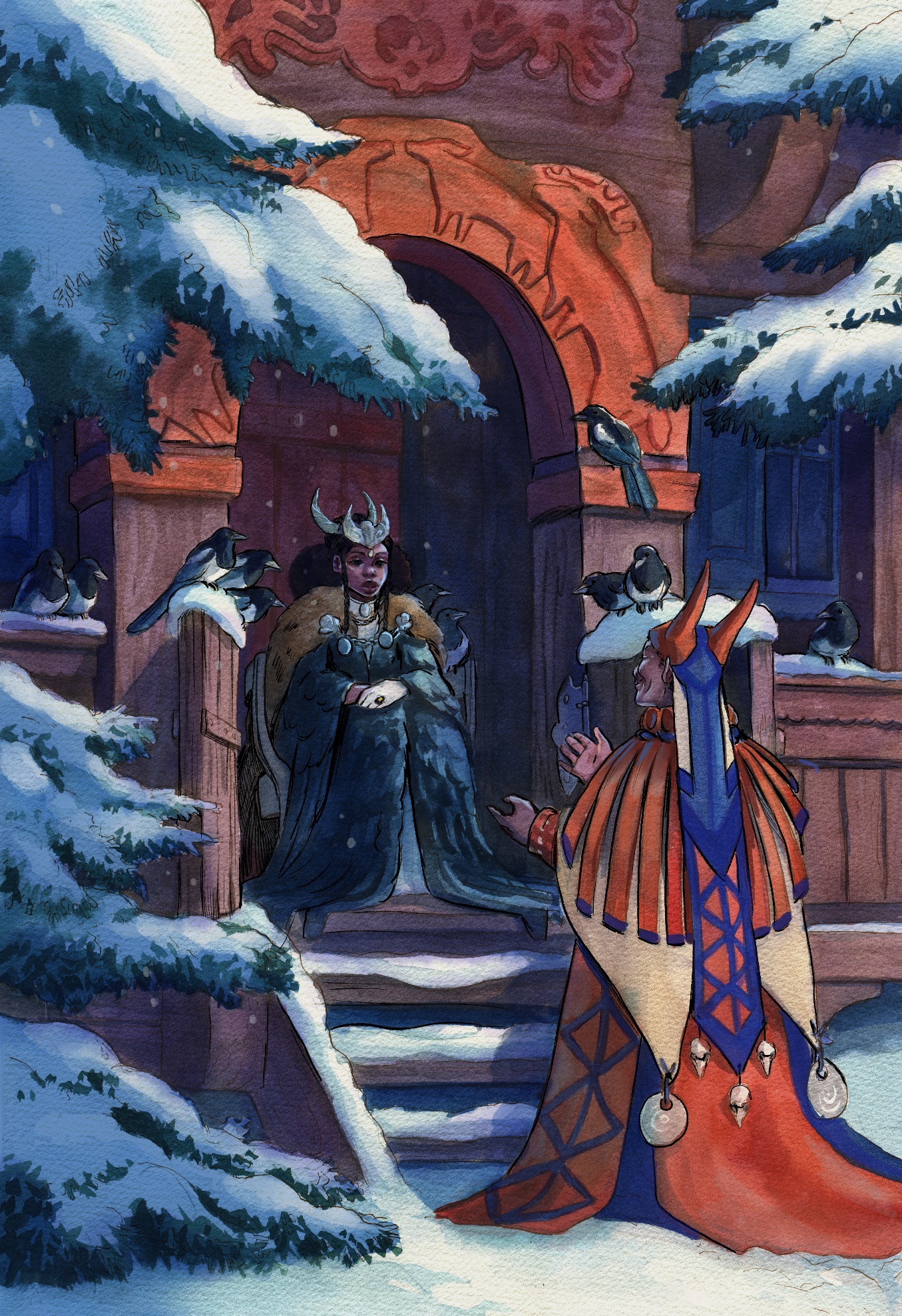Chapter 65:
A Tiding of Shamans
The night in the garret was as unpleasant as the night in the living room. The dark corners of the room were heavy and mishappened, while the bright moonlight behind the branches cast shadows like horns, quivering in the wind.
The carved faces – the ones not scratched to oblivion – stared down in anguish from the window trim. One of them had glass marble eyes and it glinted and gleamed all night.
When she did sleep, she had dreams about Quin – shapeless but dreadful – so when Moth did at last wake up the next morning she felt as exhausted as if she’d walked all night.
Moth sat up in bed and stared at the floor.
In her daydreams mere weeks ago, she’d pictured a joyous and exhilarating return, a reunion – but she only felt tired. She had to wait for the word to spread to the farmers, for them to gather to hear about the sunstones, and now she must wait anxiously.
Rummaging through her packed clothes, none of them were useful for the day. One was marked ‘entry clothes for first burial’, another ‘Pahkinna’, another ‘snowfall riding outfit – reindeer or horse’, but none was marked ‘waiting at Poor Loom for the farmers.’
With that in mind, Moth put on Lt. Grotte’s clothes from yesterday – still dirty with cobwebs – and opened the window, letting air into her stuffy garret.
